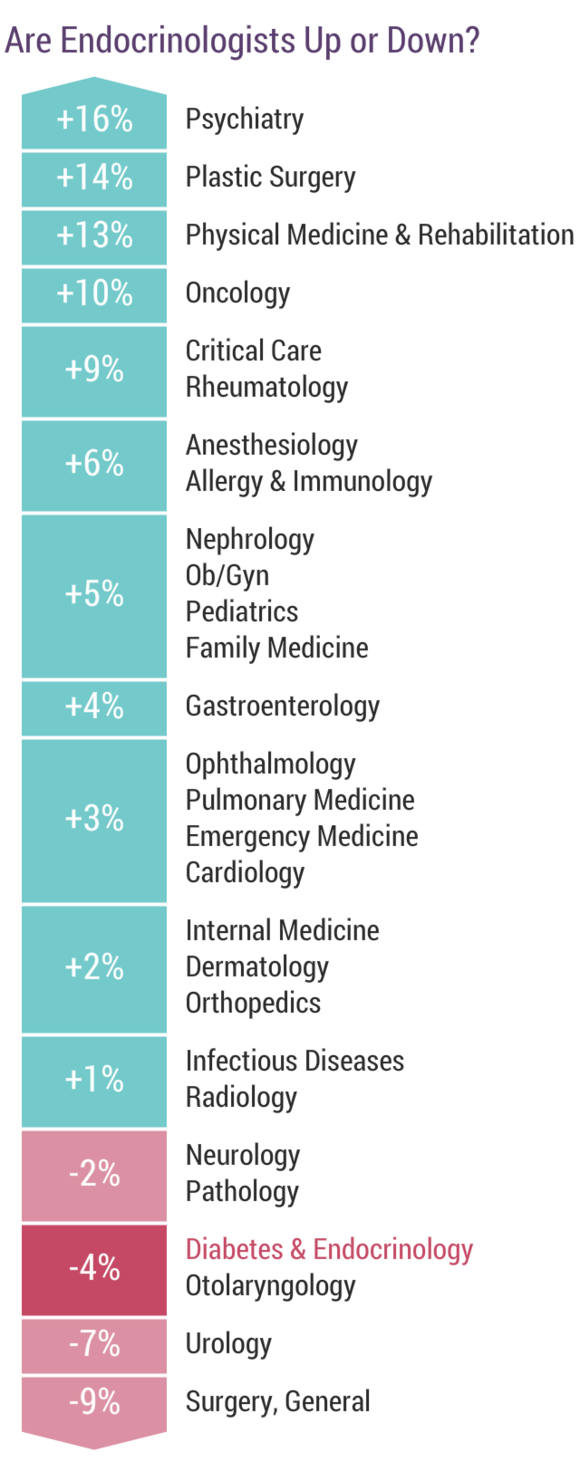Endocrinologist in Cedar Park: Comprehensive Hormone Wellness Solutions
Wiki Article
The Scientific Research Behind Hormonal Agent Regulation: Insights From an Endocrinologist
The Science Behind Hormonal Agent Law: Insights From an Endocrinologist supplies a detailed exploration of the intricate procedures entailed in hormone law. Whether you are a medical professional looking for a deeper understanding of endocrine function or a specific interested in discovering regarding the science behind hormone law, this book is an indispensable resource.Hormonal Agents and Their Functions
Hormonal agents play crucial duties in the guideline and sychronisation of various physical processes within the body. These chemical carriers are produced by endocrine glands and are launched into the blood stream, where they take a trip to target cells or organs to apply their effects. The features of hormones vary and include virtually every element of human physiology.One of the primary features of hormones is to preserve homeostasis, which is the stable interior environment needed for the body to operate ideally. As an example, insulin, a hormonal agent produced by the pancreas, manages blood sugar degrees by advertising the uptake and storage of sugar in cells. An additional hormone, cortisol, aids the body respond to stress and anxiety by increasing blood sugar level levels and reducing the body immune system.
Hormonal agents likewise play crucial functions in development and growth. Growth hormone, created by the pituitary gland, boosts the growth of tissues and bones, while thyroid hormonal agents manage metabolic process and affect the advancement of the nerve system - Endocrinologist in leander. Additionally, reproductive hormones, such as estrogen and testosterone, are accountable for the advancement and maintenance of additional sex-related characteristics and the guideline of the menstruation cycle
The Endocrine System: A Review
Playing an essential function in the policy and sychronisation of physical processes, the endocrine system is an intricate network of glands that produce and release hormones right into the blood stream. These glands, consisting of the hypothalamus, pituitary gland, thyroid gland, adrenal glands, pancreatic, ovaries, and testes, produce hormones that serve as chemical messengers, influencing various physical features. The endocrine system functions in combination with the nerves to keep and manage homeostasis, making sure that the body's interior environment remains stable.The hypothalamus, situated in the mind, is thought about the master regulator of the endocrine system. It produces hormones that promote or prevent the launch of hormonal agents from the pituitary gland, which consequently controls the activity of various other endocrine glands. The thyroid gland, located in the neck, produces hormonal agents that control metabolism and energy equilibrium. The adrenal glands, situated atop the kidneys, create hormonal agents that assist the body respond to anxiety and regulate blood pressure.

Law of Hormone Production
The regulation of hormonal agent production involves a complex interaction between various glands and feedback mechanisms within the endocrine system. Hormones are chemical carriers that play a vital duty in keeping homeostasis and working with numerous physical processes in the body. The production of hormones is firmly regulated to make certain the appropriate performance of the endocrine system.The hypothalamus, located in the brain, functions as a key regulatory authority of hormonal agent production. It releases hormones that stimulate or hinder the production of hormones by the pituitary gland, look at here now which is usually described as the "master gland" of the endocrine system. The pituitary gland, subsequently, produces hormonal agents that act on different target glands throughout the body, boosting them to generate and launch specific hormonal agents.
Responses devices additionally play a vital function in hormone guideline. There are two types of feedback systems: negative responses and favorable comments. Adverse feedback aids preserve hormone levels within a narrow variety. When hormonal agent degrees rise above or drop listed below the optimal variety, the body causes mechanisms to either reduction or rise hormonal agent production, specifically, to bring back balance. Favorable comments, on the other hand, enhances the manufacturing of hormones in feedback to specific look at here stimuli, such as childbirth.
Responses Loops in Hormone Regulation
Feedback loops play an essential duty in the guideline of hormonal agent manufacturing. These loopholes entail a series of communications between the endocrine glands, hormones, and target body organs to maintain homeostasis in the body. There are two sorts of responses loops: unfavorable responses and favorable comments.Unfavorable responses is the most common kind of responses loop in hormone regulation. It works by noticing the levels Click Here of a hormonal agent in the blood and adjusting hormone manufacturing as necessary. When hormonal agent levels climb over a particular threshold, the hypothalamus in the mind indicates the pituitary gland to reduce hormonal agent production. This, subsequently, minimizes the stimulation of the target body organ, bring about a decline in hormone secretion. Conversely, when hormonal agent degrees go down below the threshold, the hypothalamus boosts the pituitary gland to raise hormone production, recovering balance.
Positive responses loops, on the other hand, intensify hormone production. This happens when a hormone stimulates the launch of even more of the same hormone, bring about a rapid boost in its degrees. Nonetheless, positive comments loopholes are less usual in hormonal agent regulation and are normally associated with particular physiological processes, such as childbirth and lactation.
Aspects Affecting Hormonal Agent Equilibrium
Variables influencing hormone balance include dietary selections, lifestyle habits, and environmental exposures. These aspects can have a substantial influence on the fragile equilibrium of hormonal agents in the body, influencing different physical procedures and total wellness.Nutritional selections play an essential role in hormone regulation. Consuming a balanced diet that includes a variety of nutrients is important for maintaining hormone equilibrium. Particular nutrients, such as omega-3 fats, vitamins, and minerals, are especially crucial for ideal hormone feature. On the various other hand, a diet plan high in processed foods, refined sugars, and unhealthy fats can disrupt hormonal agent degrees and result in imbalances.
Sufficient sleep is important for hormonal agent production and guideline, as disrupted sleep patterns can lead to inequalities. Additionally, persistent stress can dysregulate the hypothalamic-pituitary-adrenal (HPA) axis, a crucial gamer in hormone policy, leading to a waterfall of hormonal inequalities.

Verdict
In verdict, recognizing the scientific research behind hormonal agent guideline is necessary for preserving general health and well-being. Hormonal agents play critical duties in different bodily functions, and their manufacturing is controlled by complicated feedback loopholes.The Scientific Research Behind Hormone Law: Insights From an Endocrinologist uses a thorough expedition of the elaborate procedures involved in hormonal agent policy. It generates hormones that inhibit the release or boost of hormonal agents from the pituitary gland, which in turn manages the task of other endocrine glands. It launches hormones that promote or inhibit the production of hormonal agents by the pituitary gland, which is typically referred to as the "master gland" of the endocrine system. The pituitary gland, in turn, generates hormones that act on different target glands throughout the body, stimulating them to create and launch specific hormones.
When hormonal agent degrees rise over a particular threshold, the hypothalamus in the brain indicates the pituitary gland to lower hormone manufacturing. (Best endocrinologist in austin)
Report this wiki page